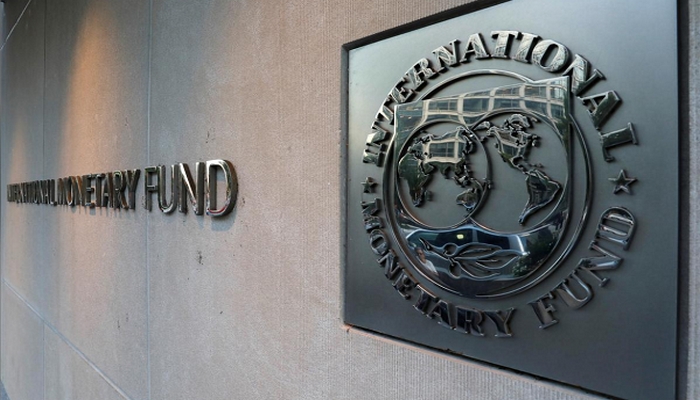
The International Monetary Fund (IMF) has thrown its weight behind the Central Bank of Nigeria’s (CBN) tightening monetary policy approach to rein in inflation and recommended the same approach for other central banks.
The CBN Governor, Mr Godwin Emefiele, announced a raise in the apex bank’s benchmark lending rate from 17.5 per cent to 18 per cent, in an aggressive push to contain inflationary pressure.
The Fund made the recommendation in its Global Financial Stability Report released on Tuesday at the ongoing IMF/World Bank Spring meetings in Washington DC.
It told other nations to embrace Nigeria’s approach as a simultaneous, massive and synchronous tightening monetary policy remains a potent option to tame the inflation monster.
IMF noted that inflation has reached frightening levels in many countries as the world economy grapples with a shaky recovery from the COVID-19 pandemic and the devastating effects of the Russian-Ukraine war.
It added that heightened global vulnerabilities have continued to push interest rates way above central banks’ targets.
Speaking on the global inflationary pressures while presenting the Global Financial Stability Report, the IMF Director, Monetary and Capital Markets Department, Tobias Adrian said that the emergence of stress in financial markets was complicating the task of central banks.
He noted that tighter fiscal policy could also play an active role in stimulating economic growth.
By cooling off economic activity, it said such fiscal policies would support monetary policy, allowing real interest rates to return faster to their low natural level.
“Appropriately designed fiscal consolidations will also help rebuild much needed fiscal buffers and help strengthen financial stability,” it added.
“The availability of tools aimed at addressing financial stability risks should help central banks separate monetary policy objectives from financial stability goals, allowing them to continue to tighten policy to address inflationary pressures.
“If financial strains intensify significantly and threaten the health of the financial system amid high inflation, trade-offs between inflation and financial stability objectives may emerge.
“Clear communication about central banks’ objectives and policy functions will be crucial to avoid unnecessary uncertainty. Policymakers should act swiftly to prevent any systemic event that may adversely affect market confidence in the resilience of the global financial system.
“Should policymakers need to adjust the stance of monetary policy to support financial stability, they should clearly communicate their continued resolve to bring inflation back to target as soon as possible once financial stress lessens.”
On the global banking sector tremors which saw the recent collapse of Silicon Valley Bank (SBV) in the United States of America (USA) and Credit Suisse in Switzerland, the IMF said the unsavoury development has flaunted inherent failures in the internal risk management practices with respect to interest rate and liquidity risks at banks, as well as supervisory lapses.
It said, “Supervisors should ensure that banks have corporate governance and risk management commensurate with their risk profile, including in the areas of risk monitoring by bank boards and the capacity and adequacy of capital and liquidity stress tests.
“For Non-Bank Financial Institutions, policymakers should close data gaps, incentivize proper risk management practices, set appropriate regulation, and intensify supervision.
“Adequate minimum capital and liquidity requirements including for smaller institutions that, individually, are not considered systemic, are essential to contain financial stability risks.
“Prudential rules should ensure that banks hold capital for interest rate risk and guard against hidden losses that could materialize abruptly in the event of liquidity shocks.
“In the current environment of persistent inflation and high interest rates, authorities should pay specific attention to bank asset classification and provisions as well as to exposures to interest rate and liquidity risks.
“Central banks’ liquidity support measures should aim to address liquidity, not solvency issues.”
On some of the recent responses by policymakers, the IMF stated that further work is needed on the resolution reform agenda to increase the likelihood that systemic banks can be resolved without putting public funds at risk.
“While it is a positive development that shareholders and holders of other capital instruments incurred losses, allocating more losses across the creditor hierarchy before public funds are put at risk is proving harder to deliver.
“The international community will need to take stock of these experiences and draw policy conclusions on the effectiveness of resolution reforms after the global financial crisis,” the IMF said.
In case of imminent crisis, it stated that capital outflow measures may be an option to lessen outflow pressures, noting that they should be part of a comprehensive policy package that tackles underlying macroeconomic imbalances and be lifted once crisis conditions abate.
The Report added: “More than ever, policymakers will need a steady hand and clear communication. The appropriate course of action is contingent on the state of the financial system. As long as the latter remains reasonably stable, as it is now, monetary policy should stay firmly focused on bringing inflation down.
“A silver lining is that the banking turmoil will help slow aggregate activity as banks curtail lending in the face of rising funding costs and of the need to act more prudently. In and of itself, this should partially mitigate the need for further monetary policy tightening.
“But any expectation that central banks will abandon the fight against inflation would have the opposite effect: lowering yields, supporting activity beyond what is warranted, and complicating the task of central banks.”
Credit: The Sun






